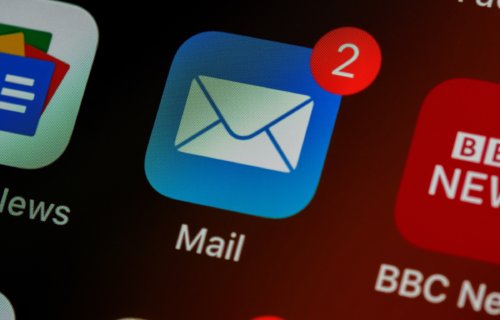
ITHACA, N.Y. — Emails supposedly make our work lives more convenient, but in many scenarios they serve to overcomplicate instead of simplify. Many people feel pressure to answer the emails they receive immediately, while others worry if the recipient will be misinterpret their words. Additionally, plenty of people can relate to seeing the dreaded “urgent” email in our inbox after leaving work. Luckily, researchers from Cornell University find employees can eliminate a great deal of “email stress” with a few simple tweaks.
Study authors suggest that email senders take an extra moment to ensure their messages are both clearly worded and provide concrete response expectations. In other words, let whoever you’re emailing know that they don’t have to respond right away, or even that day.
“The huge shift to remote work that has accompanied the COVID pandemic has meant that for many people the lines between work and home have blurred more than ever,” says study co-author Vanessa Bohns, associate professor in the Department of Organizational Behavior, in a university release.
“That makes it even more important to recognize that people have different working hours – and off-hours – and even more important for senders to clarify that simply because it was a good time for them to send off a work email, recipients shouldn’t be expected to respond immediately, particularly if it arrives in their inbox during their off-hours,” she continues.
Even emails during work hours stress people out
Researchers conducted eight experiments during this project. They observed that non-urgent work emails sent during off-business hours usually result in the largest levels of email stress for the recipient. However, even emails arriving during regular business hours often spark great unease as well.
Interestingly, email senders almost always expressed shock after finding out their email cause receivers stress, particularly regarding emails going out after usual business hours. This suggests that most people simply assume that the receiver knows they don’t expect an immediate response. Just taking a few moments and actually stating as much made a big difference, though, and largely eliminated email stress among receivers.
“Integrating insights from boundary theory and the egocentrism literature, we suggest that email senders and receivers have divergent expectations in terms of response speed. That is, receivers assume senders expect a faster response than they actually do,” the study authors conclude. “We label this phenomenon the email urgency bias, and we argue that this error is the result of an egocentric bias that leads receivers to overestimate senders’ response speed expectations.”
The study appears in the journal Organizational Behavior and Human Decision Processes.
Lea la versión en español en EstudioRevela.com: Así es cómo aliviar el estrés causado por los correos electrónicos de trabajo fuera del horario laboral.
